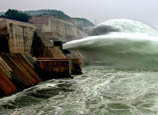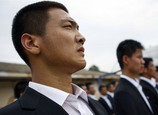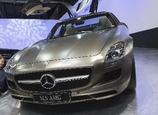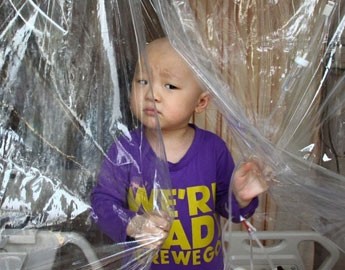
"The decision is difficult to understand and would leave an impression that personal interests are possibly behind the move," Thorsten Preugschas, AFASE spokesman, told the China Central Television. "In fact, most EU countries oppose the tariffs."
The organization launched campaigns and submitted an open letter to the EU Trade Commissioner, which got signatures from 700-plus PV companies in Europe for support.
AFASE also says that EU ProSun, the alliance of EU PV makers, which supports the tariffs imposed on their Chinese competitors, does not represent the interests of the EU PV industry, as it only counts 45 members.
"It's unfortunate that Chinese firms have to pay the duties. European solar companies are also the victims, as that means we have to spend more on our raw materials," Preugschas said.
Bai said the EU's duties come at a time when the continent is mired in a slow economic recovery and in dire need of new means of growth. "Imposing hefty tariffs on Chinese solar products hurts the EU as much as it hurts China. The EU knows it. It just wants to use it as a leverage for negotiating with China," he said.
Industrial reshuffle
With too heavy a reliance on the European market, the punitive duties could deal a heavy blow to the financially strapped Chinese PV manufacturers that are struggling with excess production capacity and a price-cutting war.
China's solar industry has long been criticized for its overcapacity, lack of core technology and over dependence on foreign markets. Without key technology, solar makers in China struggle in the low-end of the industrial chain and have tried to win over foreign markets with a strong competitiveness in price, which they gain due to economy of scale and lower labor costs.
As more trade barriers emerge from the EU and the United States, Chinese solar makers have turned to emerging markets and demand at home. In 2012, Chinese exports of PV products to the Association of Southeast Asian Nations and Africa soared by 22.1 percent and 10.9 percent, respectively, according to a report from the China Market Report Center under the Shenzhen Zero Power Intelligence.
Yuan Quan, Manager of the Markets Department at Huilun Solar Energy, said exports to the EU in 2013 only account for less than 40 percent of its total exports. "We marched into the South American market, Japan, Southeast Asia and Africa and made marked progress," he said.
Yingli Green Energy followed suit. The EU market once accounted for 80 percent of Yingli's global shipments, but the proportion decreased to 50 percent in the first quarter of 2013. "We started the strategic shift ever since the EU started their anti-dumping and anti-subsidy investigations," said Fan Zhenhua, director of Yingli's legal affairs department.
Chinese solar makers have also pinned their hopes on demand in the local market due to favorable government policies that encourage families to generate solar power at home and sell it to the National Grid. The Central Government will also offer financial support to companies to beef up their presence at home, according to a State Council executive meeting on June 14.
"China's domestic market has yet to be fully tapped. We are studying how to further cultivate demand at home," said Premier Li Keqiang, adding that solar power has a role to play in China's ongoing industrialization and urbanization plans.
China-EU Trade Disputes
June 13, 2013: The EU requested consultation with China on the latter's anti-dumping duties on certain high-performance stainless steel seamless tubes from the EU. A request for consultation is the first step in a dispute at the Dispute Settlement System under the WTO.
June 5, 2013: China's Ministry of Commerce began an anti-dumping and anti-subsidy investigation into wines imported from the EU.
June 4, 2013: The European Commission announced a provisional anti-dumping duty of 11.8 percent on PV products from China, beginning June 6. The rate will increase to an average of 47.6 percent from August 6 to December 6, unless there is a negotiated solution between China and the EU beforehand.
May 8, 2013: The European Commission agreed to impose an average of 47 percent in tariffs on EU imports of Chinese solar products, starting from June 6, which must be ratified by EU member states.
November 8, 2012: China's Ministry of Commerce decided to impose anti-dumping duties on the products originating from the EU and Japan beginning November 9, which will last for five years.
November 8, 2012: The EU launched an anti-subsidy investigation on EU imports of solar products made in China.
September 6, 2012: The EU launched an anti-dumping investigation on EU imports of solar products made in China.
 |

















 Childhood in an isolated sterile room
Childhood in an isolated sterile room


![]()
